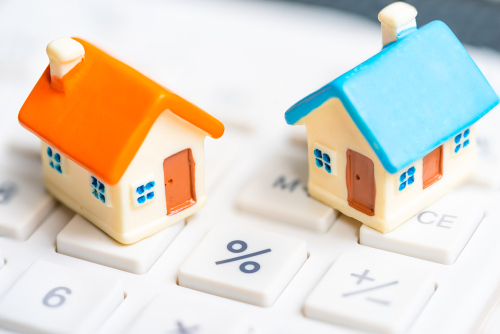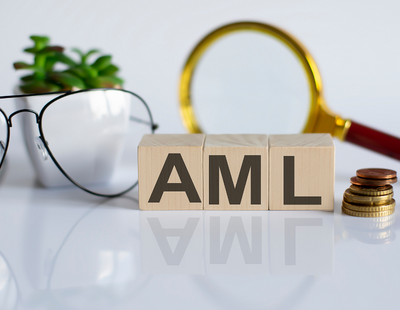There are growing fears that the hoped-for Bank of England base rate cut this spring - the first off possibly several this year - could now be delayed.
The consumer price index measure of inflation was up from 3.9 per cent a month ago to 4.0 per cent in the year to December, according to the Office for National Statistics. A fall to 3.8 per cent had been widely expected.
As if this was not bad enough, there have been growing expectations that inflation in the coming months will rise thanks to the increased shipping costs due to Red Sea diversions. This has not have been captured by the released data so any effect will now be seen in February.
Jatin Ondhia, chief executive of mortgage broker Shojin, says: “Investors shouldn’t let this shock increase derail their plans. It was just 0.1 per cent and, given interest rates remain elevated, there are new opportunities. The question is whether this is a blip or it signifies more inflation troubles in 2024.
“If indeed inflation does start to steadily fall again, the base rate is also expected to be cut later this year. So, people will need to consider how they respond to these shifts, as well as broader considerations, such as ‘What happens if the UK economy enters a recession?’ and ‘What might the upcoming general election mean for my investments?’”
Even the gently falling rates levied by mortgage lenders may now be at risk.
Matt Smith, Rightmove’s mortgage expert, says: “I’d expect swap rates to rise a little in reaction to these surprise inflation figures. Average rates had been falling pretty sharply, but this is likely this to slow as lenders take a more cautious approach over the next few weeks. The big picture is still positive for mortgage rates, with rates more stable and attractive for movers than a year ago.”
Tim Bannister, Rightmove’s property expert, adds: “This morning shows that we can still expect some economic surprises this year, and agents report that the market is still very price sensitive. However, we’re seeing much more confidence from many movers at the start of this year, who are determined to get on with their plans.”
To add to depressing news for the housing market, the government’s official house price index shows a 2.1 per cent annual fall, with prices down in November alone by 0.8 per cent on average.
Agents have tried to bat this bad news off.
The director of Benham and Reeves, Marc von Grundherr, comments: “There’s been an air of positivity hanging over the UK property market for a number of months now and this is unlikely to evaporate due to a marginal decline in sold prices. Not only is there a seasonal influence at play with today’s figures, but what we’re seeing is a return to the norm following a pandemic inspired period of house price boom. The market is currently finding its feet as buyers adjust to the reality of higher mortgage rates, while sellers are also having to adjust their expectations and as the two meet in the middle, we expect the market to stabilise.”
Jeremy Leaf, north London estate agent and a former RICS residential chairman, says: “These figures reflect housing market activity of at least a few months ago, even though they are the most comprehensive of all the surveys as they include cash and mortgaged transactions. At that time, buyers and sellers were reacting to uncertain economic times before inflation and mortgage rates had started to stabilise and fall.
“On the ground, the situation is different now with early signs of an improvement in confidence, translating into more viewings and offers. However, the inflation figures show there is still a long way to go and it is likely to be a bumpy ride."














%20-%20IMAGE%20Client%20Accounting%20%E2%80%93%20what%20are%20your%20options.jpg)

%20(002).png)
.png)
.png)

%20(002).jpg)






.png)





Join the conversation
Jump to latest comment and add your reply
Why are climate related price fluctuations a surprise to anyone, especially economists?
If you think the last year is bad then you're in for a shock over the next 5 - 10 years, it is going to be a bumpy ride every year (or worse). The best thing everyone can do to protect themselves and their industry is:
- eat less meat & dairy (the highest emitters in the food system)
- buy less stuff you don't need
- travel by air less - each flight you take to that beautiful reef, ski resort, golf course etc means it is less likely to be there the following year
- be brave and bring up the still bizarely taboo subject at work and discuss what you can do to mitigate your business/industry's emissions
- write to your local MP and ask what they are doing about it, you will get a response
Or do nothing and then in 5 - 10 years you can wish you did.
Whats all the noise about the red sea and UK inflation? 1) only 15% of world trade, let alone UK trade goes through there, so at worst inflation would only be impacted by one seventh of a normal global threat and more likely less, as 2) UK imports through there are generally exotic foods from the Indian Subcontinent we cant grow in the UK, spices, fruits, coconut milk etc which will yes see an increase in price. How much of that stuff does the average UK citizen really use? 51% of our imports, all our every day stuff comes from the EU, 18% from North America. Nothing to see here British Press.
Fishy Billy, the himalayas, or the ice coating them were supposed to melt by 2000. Prince Charles has been forecasting apocalypse now nearly every year and still flies around in helicopters and giant jet airliners. We've imported staggering numbers of people into Britain who are overwhelming NHS services especially maternity.
We don't have a Prince Charles.
WE had a prince cgales when he was proclami g virtually year after that we would have a thermal apocalypse.
Please login to comment